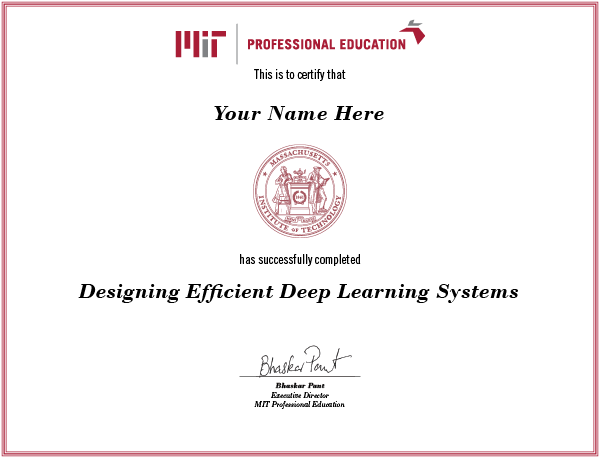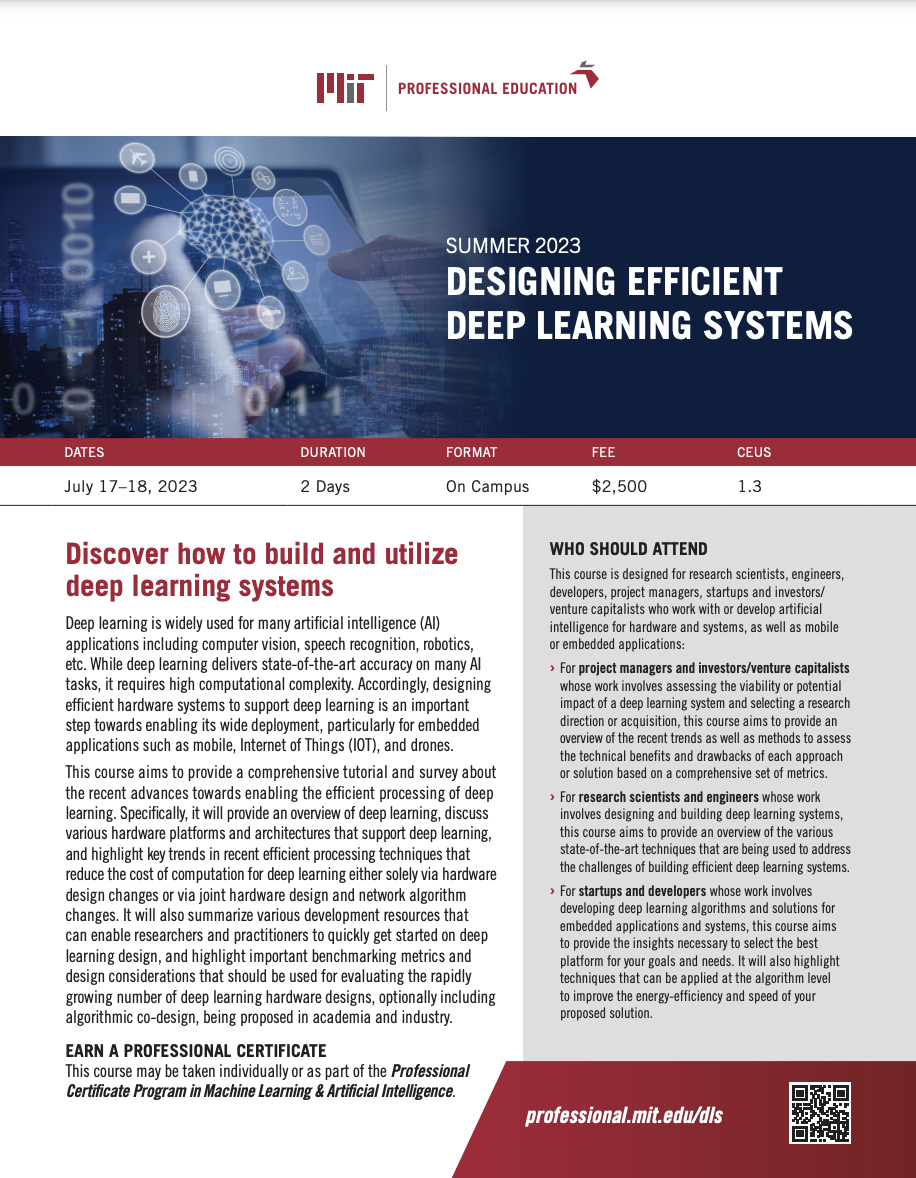This course is offered in a hybrid format, with in-person and live online cohorts attending simultaneously. When registering, select the appropriate registration button below.
Autonomous robots. Self-driving cars. Smart refrigerators. Now embedded in countless applications, deep learning provides unparalleled accuracy relative to previous AI approaches.
Yet, cutting through computational complexity and developing custom hardware to support deep learning can prove challenging for many enterprises—and the cost of getting it wrong can be catastrophic.
Do you have the advanced knowledge you need to keep pace in the deep learning revolution?
This course may be taken individually or as part of the Professional Certificate Program in Machine Learning & Artificial Intelligence.
The type of content you will learn in this course, whether it's a foundational understanding of the subject, the hottest trends and developments in the field, or suggested practical applications for industry.
How the course is taught, from traditional classroom lectures and riveting discussions to group projects to engaging and interactive simulations and exercises with your peers.
What level of expertise and familiarity the material in this course assumes you have. The greater the amount of introductory material taught in the course, the less you will need to be familiar with when you attend.




